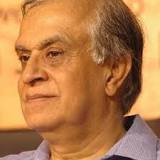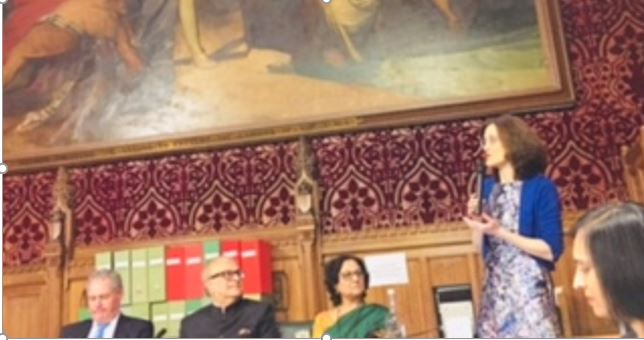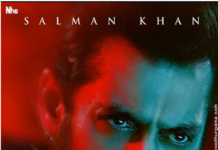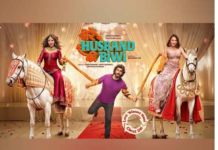An event was organised on the 22nd February, at the House of Commons Committee Room, to welcome and listen to Rajiv Malhotra. who is an Indian-American author and Hindu activist who, after a career in the computer and telecom industries, took early retirement in 1995 to found The Infinity Foundation and promotes a non-western and nationalistic view on India and Hinduism.
The event was jointly organised by Hindu Forum of Britain (HFB) and National Council of Hindu Temples.
Shri Madhu Shastri and Pandit Satish Sharma lit the inaugural lamp and recited shlokas in Sanskrit, the pertinent one being ‘From darkness, lead me to Light’ Tamso Ma Jyotirgamaya.
Bob Blackman, MP for Harrow East and Lead on the APPG for British Hindus welcomed Rajiv Malhotra and all the guests to the House of Commons. He spoke of his recent visit to Ahmedabad, where he had arrived by a direct flight from London. He had met the Indian Deputy Foreign Secretary and Deputy of the NSA. He made the alarming observation that ‘China is encircling India’ by its presence in South India and Sri Lanka, in the Maldives and the proposed corridor to Pakistan. He spoke about greater cooperation between Britain and India. It is said that he is India’s best friend in Parliament.
Trupti introduced the main speaker Rajiv Malhotra and recounted his illustrious Corporate Career and his current remit of re-stating the Indian narrative with decolonisation.
Rajiv spoke about soft power and hard power, the old Indian narrative and the new narrative, and their differences. The old Indian narrative has 2 opposing views. The decolonised version is well known, but is outside of Indian academia of the Lutyens type. The colonised version of the Indian narrative has been prevalent, largely unchanged, in Indian academia for decades, pre and post Partition. It has been at the forefront of Breaking India. This colonised Anglicised, or Eurocentric narrative is in communication with British academia, and continues to be perpetuated, often unchallenged.
It is well known that the British academics align with the ‘intellectuals’ of the Luteinised academia in India. The decolonised swadeshi narrative has been gaining momentum in recent years. The colonised intellectuals have been displaced in India, mostly since Narendra Modi came into power in India.
The asymmetric imposition of secularism, on the Hindus and the overdone atheism anti Hindu position of the ‘Left’ has been rejected. However Indian academia has not fully caught up yet, and continues to be largely Hinduphobic, though there is evidence of change. Indian academia will now have to change its narrative, that is inevitable and long overdue. It can no longer forge alliances with the Breaking India forces. This alliance is to be broken and erased into history and oblivion.
The hard power of the Kshatriyas – political and military has been rising slowly in India, and will continue to do so.
The intellectual capital, largely held by Brahmins was replaced, as English replaced the old languages Hindi, Sanskrit and Tamil. The Indian Left and its 5 waves of imported ideas from Marxism, to postmodernism will falter now. The soft power and original cultural capital of India needs to be resurrected Rajiv reminded us.
Rajiv gave some historical details about how Classical Indian thought, and modern economic and scientific thought are linked. It has been estimated that in 1750 India’s GDP comprised 25% of the world GDP, Europe and North America 20% and the rest of the GDP belonged to China. Indians were adept at all sciences. Early European scholars and the East India Company studied steel manufacture and textiles in India, for example. The British Industrial revolution hinged on steel and textiles manufacture, which benefitted Britain as it sold to captive colonial markets, including the market in India.
Mathematics was taken from India by the Arabs, then travelled to Europe where it was translated into Latin, and became more widely known. The Arabs gave India its due credit, but the credit was lost during its route into Europe. Rajiv emphasised that Britain should acknowledge India as the source of mathematics, and much else. He also stated it was futile for India to ask for financial reparations from Britain, and that it would be more fruitful to put the past behind us and move forward. The culture of Us versus You needs to become a mutually beneficial one. Some of this process has begun already.
Soft power, especially of the Indian narrative in India and in the UK needs to be reset. The Aryan Invasion Theory which was used to legitimise the Empire, was a false invention, and this needs to be stated in academia. That 1.3 million Indians lost their lives in WW1, and a large number lost their lives in WW11, needs to be more clearly stated, and a fitting memorial dedicated to these Indian soldiers. It is likely that Britain and the allies would have lost and Britain would now be a colony of Germany, if Indian soldiers had not helped in the victory against Germany. The Jal1awalan Bagh massacre also needs an apology and fitting memorial from Britain.
Britain needs to counteract the overdone caste oppression theory and stop supporting Christian Evangelists in India. The communities can build a more positive grand narrative in India, instead of continuing with the Breaking India agenda.
 Rajiv added that the UK missed out on the globalization of yoga wave and that the US benefitted from this a lot more. There are areas for collaboration on the knowledge held by Indian sciences of the Mind, and the social theory of aging. It is to be noted that the US multidollar economy is partly run by many Indian brains, especially in the IT sector, NASA, Microsoft and Google. The UK has become a consumer of products made in the USA.
Rajiv added that the UK missed out on the globalization of yoga wave and that the US benefitted from this a lot more. There are areas for collaboration on the knowledge held by Indian sciences of the Mind, and the social theory of aging. It is to be noted that the US multidollar economy is partly run by many Indian brains, especially in the IT sector, NASA, Microsoft and Google. The UK has become a consumer of products made in the USA.
As Britain heads towards Brexit, with its need to re-state its own identity, (as opposed to having a diffuse diluted European identity,) Britain will re-examine the trade links with Europe and the rest of the world. India would continue to be an important partner. Soft power would bring hard impact. Alliances of mutual benefit are the way forward.
The mistakes of the past can be re-examined and remedied, so that Britain gains benefits, and the US does not overshadow this. The habit of looking through the lens of colonisation needs to be modified by Britain, and could be replaced by an open and wider 3D vision, of mutual benefit. in other words, sabka saath, sabka vikaas.
Rajiv concluded that it is evident there has been a clash of narratives, the Indian classical narrative and the colonised Left narrative, and he is advocating cooperation and mutual respect, with intellectual honesty.
Towards the end of the event Steve Pound spoke about integration being superior to assimilation as it relates to Hindus in Britain.
Tanmanjeet Singh MP, a relatively new MP of Indian origin, gave a short resume of some of the changes taking place to make it easier to travel between Britain and the different hubs of India, and hence make it easier to do business. New flight routes have been started in recent years, e.g. flights to Amritsar from Birmingham. There is work in progress for similar flights to start from Manchester to the Indian hubs.
Theresa Villiers MP gave a brief concluding speech, and congratulated Rajiv Malhotra on his informative speech.This was followed by an interactive question and answer session, when Rajiv responded to questions about reparations by Britain, mutual respect and the reasons why Britain chose Brexit.
By: Dr.Sudha Vashisht

Readers like you, make ESHADOOT work possible. We need your support to deliver quality and positive news about India and Indian diaspora - and to keep it open for everyone. Your support is essential to continue our efforts. Every contribution, however big or small, is so valuable for our future.












Great summary. A quick pointer to a typo perhaps?
Should this stmt “That 1.3 million Indians lost their lives in WW1,” not read as “That 1.3 million Indians fought in WW1, ?